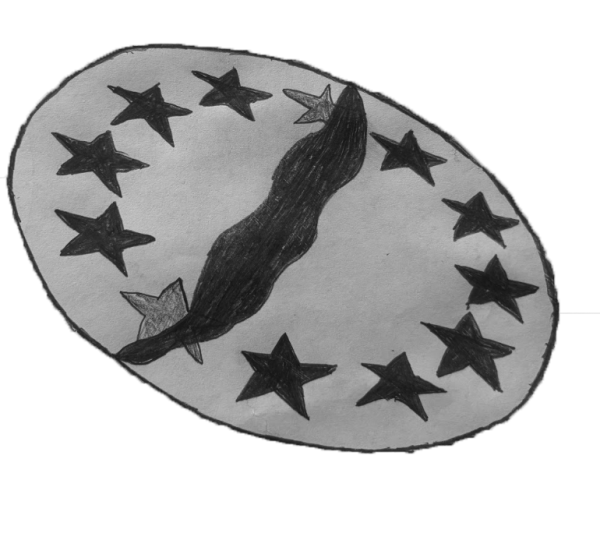Editorial: A (Very Broad) Year of Reflection
2020 requires processing.
A bizarre, uncertain, and in many ways, hellish year will come to an end in a matter of weeks. Many have already begun to celebrate, eagerly shoving behind them the “2020 vision” that was promoted just 12 months ago. But as impatient as we are to move forward, it is irresponsible and unrealistic to understate the significance of this past year and the way that it will affect young people in the months, years, and decades to come.
2020 brought on the COVID-19 pandemic, which has in turn established a widespread national grief comparable only to wartime, at least according to national leadership.
Trump even described himself as a “wartime president” in a March 18 press briefing.
However, while communal loss may equate or even exceed that of a war, the effects of the pandemic are essentially different. The casualties of war are lauded for their great sacrifices, yet those lost from COVID-19 aren’t treated as martyrs.
The explanation for this difference in public response is obvious: COVID-19 has affected just about everyone, but most victims are a subset of people often overlooked by society. They aren’t patriotic young adults dying for their country, whose loved ones can mourn collectively under an umbrella of shared beliefs or values at vigils and gatherings.
Instead, they’re a majority often overlooked: people of color continuously underserved by the American healthcare system, millions of blue-collar citizens working nine to five every day, those suffering from chronic health conditions, and the elderly. They are forced to pass away alone, and in turn, their families must grieve alone, watching their WiFi connections waver during Zoom funerals.
While wartime does bring this immense sorrow, a common silver lining is an economic boom. But as 2020 ends, we are faced with an ongoing recession. Young people are not exempt from the difficulty of finding work. Children during the 2008 financial crisis, we have come of age during yet another recession and our generation will be fundamentally different consumers as a result.
The motto of the United States is “e pluribus unum”, (out of many, one), but it seems that this year, the concept of the “rugged individual” has won out instead: a citizen so self-reliant that they’re undeterred by rules or regulations from any authority figure. This apocalyptic response, though certainly disheartening when one considers the lack of “common good”, is disappointingly explainable: national leadership has failed, essentially abandoning its people in crisis.
The seclusion of COVID-19 has fueled a climate of broad polarization. Social media, the only alternative we have for in-person communication, deals only in absolutes, creating echo chambers of ideological isolation. The long-term impact of this phenomenon is unknown, but we already see the damaging effects it’s had on our current political climate. Outside these bubbles, we are unable to see the vast number of similarities we hold with one another and respond rashly to those who disagree with us.
But this doesn’t mean we should stick our heads in the sand. This summer, our nation reached a turning point as we mourned the losses of innocent people of color killed at the hands of police and fought for substantial reforms in their honor. People flooded the streets in the most extensive protests for racial justice since the Civil Rights era. These protests serve as a reminder that advocating for oneself and the rights of those silenced by the system.
But Generation-Z is not special. History is constantly in the making; momentous and tragic periods occur in cyclical patterns all too often. And still, it is not inaccurate or self-impressed to acknowledge that what has happened in 2020 is insane. The events that make years like 1918, 1945, 1968, or even 2001 historically significant have happened simultaneously.
The year itself is a stinging reminder that tragedy, at its very root, lacks control. Every generation experiences trauma, the impacts of which are consistently profound.
It feels necessary but almost irresponsible to move on. Perhaps the best way to do so is to consider the hidden positive lessons brought to light in the last 365 days.
We were forced to realize that happiness is fleeting and fragile. Hopefully, this conclusion is freeing–allowing us to understand the importance of savoring these positive moments and feel liberated in progressing forward.
Maybe going through such traumatic times in our adolescence will result in us being better equipped to deal with tragedies and hardships we encounter later in life.
This societal standstill will certainly breed creativity, innovation, and renewed productivity. Maybe individuals will have a sense of increased urgency in working towards their goals and aspirations.
Or maybe, for once, the pace of work will slow. The constant rush in everything we do, whether it be work, school, or socializing has undoubtedly halted during this pandemic and for many, given us time to reflect on what things truly make us feel the most alive. Perhaps going forward, mental health will be prioritized, and not an afterthought.
If 2020 has taught us anything, it’s that it is unwise and impossible to try and predict the future. Instead, some introspection will hopefully give each of us a renewed vision for the new year: a resolution. Ours here at the Messenger is to be grateful, be empathetic, and shun ignorance.
Sincerely,
Grace and Annabelle
NFO Editors
Grace Chinowsky is one of two NFO editors this year on Messenger and this is her second year on Messenger. She has always enjoyed writing, whether it's...
Annabelle is one of two News, Feature, and Opinion editors on The Messenger this year. She is a senior, and this is her second year on the paper. She hopes...



